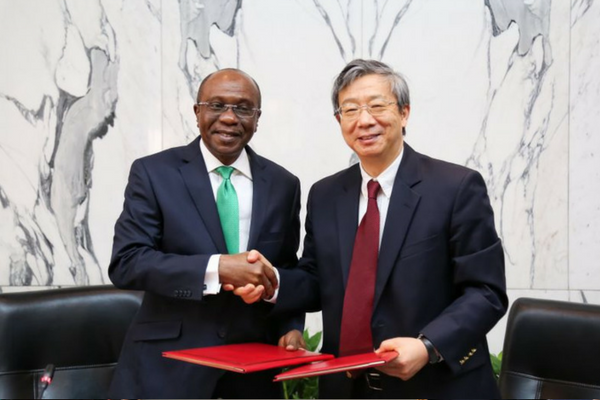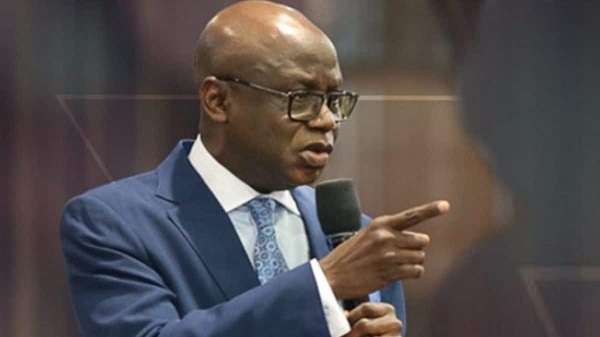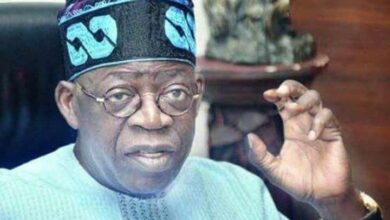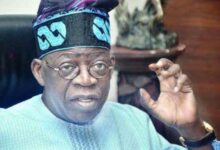
The Central Bank of Nigeria (CBN) signed a $2.5bn bilateral currency swap with the People’s Bank of China (PBoC), making Nigeria, the third country in Africa (after South Africa and Egypt) to sign such a deal with China.
The agreement will allow the two sides to swap a total of RMB15bn for NGN720bn, or vice versa, in the next three years. The deal can be extended by mutual consent.

The currency-swap was calculated at the Nigerian central bank’s interbank rate of NGN305:USD1, rather than the Nigerian Foreign Exchange Fixings (NIFEX) rate of NGN338.7:USD1. This implies that we are unlikely to see any unification between Nigerian exchange rates anytime soon.
The deal aims to facilitate bilateral trade and investment but also to promote financial stability and broader economic cooperation between the two countries. It will also help the country to position itself as a trading hub with China in the West African sub-region.
This agreement will provide NGN liquidity to Chinese firms looking to do business with Nigeria and provide RMB liquidity to Nigerian firms looking to do business with China, helping achieving effectiveness and efficiency in trade transactions between the two countries, without being exposed to the challenge of seeking another foreign currency.
In terms of the impact implication, we believe that pressure on Nigerian importers who need US dollars to import goods from China is likely to dissipate, improving CBN’s management of the country’s FX reserves.
Nigeria’s FX reserves have improved over the past year and stands at USD47.0bn (as of April 2018) from USD30.9bn a year ago, reflecting improved oil receipts alongside significant FPI inflows via the Investor and Exporter (I&E) window introduced in April 2017. The CBN has also diversified its FX reserves away from the dollar by switching into Yuan, which currently represents approximately a tenth of its total reserves.
In addition, this agreement (in addition to ongoing import ban on selected items) is likely to reduce further the strong demand for the USD and support the NGN.
With improved trading activity, stronger FX reserves and continued CBN support, the official exchange rate has been static at NGN360:USD1. In light of this new currency swap, we expect a strengthening bias on the NGN in the near term as this agreement is likely to improve FX liquidity and lead to higher flows from China.
The CBN is likely to retain its exchange rate at NGN305-306:USD1 and maintain interventions in the Secondary Market Intervention Sales (SMIS) windows at the NIFEX exchange rate of NGN327-340:USD1.
By year end, our expectations of lower oil prices and increased FPI exits from NGN assets ahead of the 2019 elections, are likely to offset some of the gains, resulting in softer NGN and bearish activity in the bonds market.
Ecobank Group Research
The Central Bank of Nigeria (CBN) and the People’s Bank of China (PBoC), on Thursday May 3, 2018 finally brokered a deal, having signed a three-year bilateral currency swap agreement worth N720 billion valued at ¥15 billion. This came two years after President Muhammadu Buhari travelled to Beijing to commence discussions on same, saying citizens of Nigeria should be able to access goods produced by China directly without having to go through Naira-Dollars exchange.
The intention of the President was to crash prices of items importable from the Asian country into Nigeria for ease of life of the people.
An official statement issued separately by the CBN and the PBOC confirmed the swap which is expected to facilitate bilateral trade between the two countries. Trade between China and Nigeria has been on the rise following the commencement of swap discussions in 2016.
Deputy Chinese ambassador to Nigeria, Mr. Lin Jing, had earlier said China’s bilateral trade with Nigeria between January and November 2017 stood at 12.3 billion, a figure that is 30 per cent improvement compared to the same period of 2016.
It said that the Governor of the CBN, Mr. Godwin Emefiele, led CBN officials while PBoC Governor, Dr. Yi Gang, led the Chinese team at the official signing ceremony in Beijing, China, ending an over two years of painstaking negotiations by both Central Banks.
As China is not in the top 10 export partners of Nigeria, this makes the Yuan not readily available for Nigerian traders who want to import from China. Instead, they convert the naira to United States dollars before converting it to Yuan, a situation that the currency swap would address.
A currency swap involves the exchange of principal and interest in one currency for the same in another currency. Simply put, it is the exchange of one currency for another at a specific rate of exchange and for a duration. It is an attempt to facilitate increased trade between two countries as well as offer a means of minimising foreign borrowing costs.
A statement on the website of the PBOC said Governor Yi Gang met with CBN governor, Godwin Emefiele, during the International Monetary Fund (IMF) and World Bank Group Spring Meetings on April 21, 2018, and exchanged views on bilateral financial cooperation, as well as other related issues.
Consequently, it said the PBOC with the approval of the State Council, had signed the swap agreement in Beijing on April 27, 2018 with the CBN “for the purpose of facilitating bilateral trade and direct investment, and safeguarding financial market stability in both countries.” The agreement is valid for three years and can be extended upon mutual consent.
The CBN in its statement said the agreement which was signed after “two years of painstaking negotiations by both central banks” was aimed at providing adequate local currency liquidity to Nigerian and Chinese industrialists and other businesses thereby reducing the difficulties encountered in the search for third currencies.
“This agreement will provide naira liquidity to Chinese businesses and provide RMB liquidity to Nigerian businesses respectively, thereby improving the speed convenience and volume of transactions between the two countries.
“It will also assist both countries in their foreign exchange reserves management, enhance financial stability and promote broader economic cooperation between the two countries.
“With the operationalisation of this agreement, it will be easier for most Nigerian manufacturers especially small and medium enterprises and cottage industries in manufacturing and export businesses to import are materials spare parts and simple machinery to undertake their businesses by taking advantage of available RMB liquidity from Nigerian banks without being exposed to the difficulties of seeking other scarce foreign currencies.
“The deal which is purely an exchange of currencies will also make it easier for Chinese manufacturers seeking to buy materials from Nigeria to obtain enough naira from banks in China to pay for their imports from Nigeria. Indeed the deal will protect Nigerian business people from the harsh effects of third currency fluctuations.”









